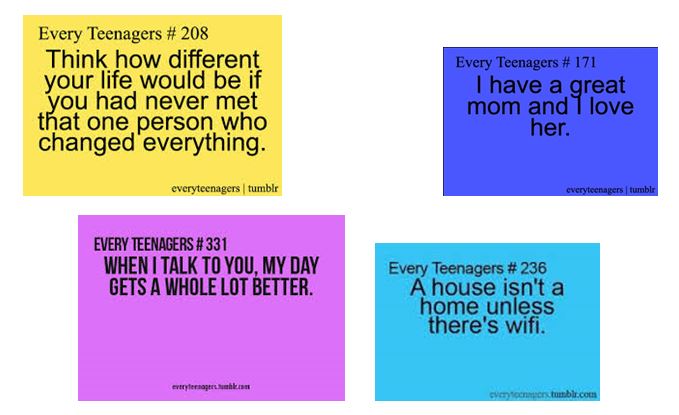
Caring for a Traumatised Teen

This article was authored by Jana Sarnovski, Team Leader,
Therapeutic Care Programs ACT, Australian Childhood Foundation.
In reflecting on this topic, I was reminded of an email from a high school teacher of a 16 year old boy with whom I worked for several years. She wrote:
“When I think about the withdrawn, angry and troubled boy we met in Year 7, I would never have imagined he would have the confidence to perform in front of his peers and to enjoy getting involved in group activities in the way that he does today. Personally I think Jason has been incredibly lucky to be surrounded by a support network, including two truly amazing foster parents in Kathy and Peter.” (Samantha, teacher)
Adolescence is a period of significant growth, change and development, and is often an exciting as well as challenging time for young people and their parents or carers. Whilst parents or carers continue to be a vital presence in young people’s lives, there is no doubt that the relationship between them changes in this period. There is a marked shift from dependence on parents to increased importance of peers; the teenagers must separate, not only physically but also psychologically, from their strong ties to parents or carers and venture into the world of peers and other people outside of the immediate family. This is the time of striving for more independence and autonomy and a period for the formation of identity.
However, the role of parents and carers in the young person’s life remains critically important and is sometimes underestimated. Research shows that many family related factors act as protection for young people and contribute to positive outcomes in adolescence and adulthood – such as providing a secure base, a sense of being valued and belonging, and having support and connectedness to the family. One longitudinal study of US adolescents showed that young people who felt highly valued and were able to confide in family members at age 15 had considerably reduced risk for mental health problems at age 30.
So what do young people in foster and kinship care need from their carers? We know that many of them experienced significant abuse and/or neglect in their early years and may have lacked stable and secure relationships; this makes the tasks of adolescence so much more difficult for them to achieve. There is clear evidence that childhood trauma can have profound effect on adolescent development and possibly a life-long impact on the young person’s physical and mental health. These young people not uncommonly turn to a number of potentially destructive behaviours to avoid or reduce strong negative emotions related to their trauma, including self-harm, unsafe or compulsive sexual behaviour and drugs and alcohol abuse.
The key to healing from the abusive experiences lies in the supportive and nurturing relationships between the young people and their carers. Such relationships provide the young person with a secure base that is so important to healthy development in early childhood and is just as important in adolescence. However, creating the secure base in adolescence is a lot more difficult than in earlier years, especially for young people in new placements. This is because they face two seemingly incompatible tasks – a need to make a secure base in the carer family whilst at the same time striving for more independence and autonomy. Added to this mix are often their experiences of numerous placement breakdowns, losses and rejection.

The young people in care report that they need to know that they are liked, accepted, valued and can be secure in being part of the carer family. At the same time they need to be helped to make sense of and navigate the complex relationships with their birth family, and not feeling like they are caught between two disparate worlds – one with their foster family and the other with their birth family. Good life story work (we like the model proposed by Richard Rose which you can read about here) is essential for young people to help them connect those two worlds. It is also necessary for the formation of healthy and coherent identity.
Caring for traumatised adolescents often requires carers approaching the parenting tasks differently from parenting their birth children. The approach needs to be based on the principles of therapeutic parenting – that is parenting that recognises what was missing in the child’s earlier parenting experiences and strives to provide this in an appropriate way promoting healing and recovery through relationship. This includes sensitive and attuned responding, appropriate boundaries and discipline, supervision, warmth towards and genuine liking of the young person and facilitation of activities and friendships. Studies have shown that adolescent placements are more stable and positive for the young people where the carers respond to them at their developmental rather than chronological age. Regression to earlier developmental stages is not uncommon in traumatised young people and it is important that carers respond to this sensitively and do not shame the young person.
“It used to drive me mad at first when she put on that baby voice and whined; then I worked out that she did it when she was really anxious or thought she was in trouble; she told me that her stepfather used to hit her hard with his belt and lock her in the bedroom for hours if she did anything, even just little things like break a cup by accident. She was just terrified that we would hit her so she turned into this little baby”. Carer of a 14 year old girl
Parenting teenagers in care needs to include acknowledgment and understanding of their trauma history and be guided by the premise that “they do the best they can”, even though their best may still be very difficult to manage. Remaining empathic to their struggles, accepting them unconditionally in spite of their difficult behaviours and not giving up on them will, without a doubt, help them “do better”, give them hope and build their capacity for the life ahead.

